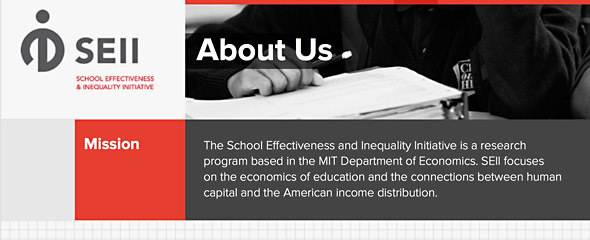Said and Done | In the Media | April 2018

A section of Said and Done
Full April 2018 edition
POLITICAL SCIENCE
Why the US tax system is so complicated | Andrea Campbell
“Unlike many other countries,” says MIT political scientist Andrea Campbell, “we make people administer their own benefits through the tax code. … Some countries have directly administered benefits, like universal preschool or family allowances. In the US, eligible households with children receive subsidies as well — the child credit, the child care tax credit, the Earned Income Tax Credit — but only if they fill out their tax return correctly.”
The Washington Post
ECONOMICS
The Autocrats’ Playbook | Daron Acemoglu
“Even before the attacks against the Dogan group started in Turkey,” says Acemoglu, “or even before the attacks against a few remaining independent TV stations and newspapers had started under Putin, you had these troll-like media outlets that were flooding the market with what we are now calling fake news.”
Story at the New York Times
ECONOMICS
What Trump's fight with Amazon signals for American business | Daron Acemoglu
“Charismatic autocratic leaders are cunning,” says Daron Acemoglu, MIT economist and co-author of the book Why Nations Fail. “They have very good instincts for politics, though I don't know if they strategize in a planned manner or if it's instinctive.”
Story at The New Yorker
ECONOMICS
The charter school movement regroups and looks ahead
The Globe cites a study from MIT’s School Effectiveness and Inequality Initiative — directed by three MIT economists — which finds not only that Boston’s “no excuses” charters impart significant education gains but also that those gains have continued as the charter sector has grown.
Story at the Boston Globe | SEII at MIT SHASS
POLITICAL SCIENCE | RESTORATIVE JUSTICE
This is American history | Melissa Nobles
In this CBS news video, Dean Melissa Nobles and Margaret Burnham, who lead the Civil Rights & Restorative Justice project, discuss their work on anti-civil rights violence in the U.S. between 1930-1970. "We are beginning to change the narrative," said Nobles, "such that families who had that violence visited upon them can now talk about it — and it can be understood."
CBS Evening News (disturbing image)
Related: 60 Minutes:Nat'l Memorial for Peace and Justice | Quest for a great-grandfather's story
SECURITY STUDIES
How John Bolton Helped Kickstart the New Nuclear Arms Race | Jim Walsh
“If we build a missile defense, the only way they can respond is to build new missiles,” said Jim Walsh, a nuclear-strategy scholar at MIT. “That's why we had an ABM Treaty in the first place, because we knew missile defense leads to arms races and creates strategic instability.”
Commentary in The Daily Beast
SCIENCE TECHNOLOGY AND SOCIETY
Why hating Facebook won't stop us from using it | Sherry Turkle
“We curate a self online that is the self we want other people to see,” says MIT anthropologist Sherry Turkle. “We preach authenticity but practice self-curation. We alienate ourselves from who we really are.”
Story at Reuters
HISTORY
Amid gun debates, colonial reenactors march a fine line | Merritt Roe Smith
“Guns in [colonial] days were iffy propositions,” says MIT historian Merritt Roe Smith: front-end-loaded, flintlock muskets were very inaccurate over 60 yards. Rifles, the latest technology at the time, fired only one or two times a minute. The Second Amendment of the U.S. Constitution, ratified with such weapons in mind, is at the center of today’s debate over gun policy and public safety.
Story in The Boston Globe

Sudbury Militia and Fourth Massachusetts Regiment; Photo: Matthew Healey, The Boston Globe
ECONOMICS
Economists say US tariffs are wrong move on a valid issue | David Autor
“I don’t think the way the administration is going about it is a particularly strategic one,” says MIT economist David Autor. “The first way to go about it should have been to sign TPP, which was set up as a bulwark against China.”
Story at the New York Times
ECONOMICS
Trump proposes rejoining Trans-Pacific Partnership | David Autor
Many economists, including MIT's David Autor, say the best way to combat a rising China and pressure it to open its market is through multilateral trade deals like the Trans-Pacific Partnership, which create favorable trading terms for participants.
Story at the New York Times
CENTER FOR INTERNATIONAL STUDIES
North Korea’s definition of “denuclearization” is different than Trump's | Vipin Narang
“The danger is entering into negotiations with unrealistic expectations that Kim is just going to hand over the keys to his nuclear kingdom. He won’t,” said Vipin Narang, an expert on nuclear nonproliferation at MIT.
Story at The Washington Post
A section of Said and Done
Full April 2018 edition
